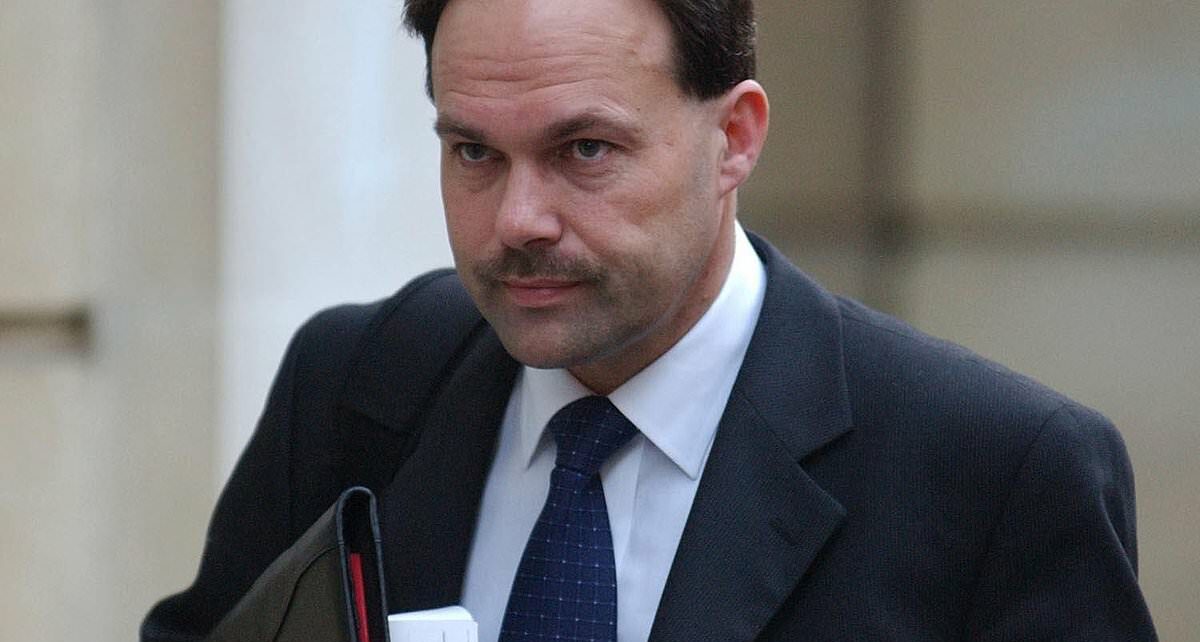Killer husband who became first prisoner to be denied parole under ‘Helen’s Law’ after refusing to reveal location of his wife’s body insists at public hearing ‘I don’t even know if she is dead’ as he maintains his innocence
- Glyn Razzell, 64, was convicted of the murder of his wife, Linda Razzell, 41
A jilted ex who murdered his estranged wife piled more heartbreak onto her family today as he again refused to say where he hid her body – insisting ‘I don’t know if she is dead’.
Glyn Razzell, 64, was convicted of the murder of his wife, Linda Razzell, 41, and sentenced to life imprisonment in 2003.
Mother-of-four Mrs Razzell disappeared on her way to work at Swindon College, Wiltshire, in March 2002 and no trace of her body has ever been found.
Razzell became the first prisoner to be refused parole under the so-called Helen’s Law in 2021, which aims to make it harder for killers to get parole if they refuse to reveal where they hid their victim’s body.
In a new hearing on Thursday, Razzell told the Parole Board panel he could not say where his wife’s remains were as he does not even know if she is dead.
Glyn Razzell, 64, was convicted of the murder of his wife, Linda Razzell, 41, and sentenced to life imprisonment in 2003
He also said his wife must have been involved in planting her own blood in the car he borrowed on the day of her disappearance but insisted he was not ‘victim blaming’.
What is Helen’s Law?
The Prisoners (Disclosure of Information About Victims) Act 2020, known as Helen’s Law, was enacted in January 2021
Named after insurance clerk Helen McCourt, who vanished on her way home from work in 1988, the law will also apply to paedophiles who refuse to identify those they abused.
Ms McCourt’s murderer, Ian Simms, was released last year despite never saying where he hid her body.
Her mother Marie McCourt spent five years calling for the legislation before it finally gained Royal Assent in November after a series of political and constitutional setbacks.
He said: ‘I don’t know where Linda’s remains are. I don’t know if she is dead for sure. I am sorry if that upsets people.
‘I understand the anguish my children (feel) in particular. I understand the way they feel, if there was anything I could do to help with that, I really would, particularly for my children.
‘I don’t know where the remains are. I don’t even know if she is dead.’
The Parole Board hearing is only the third to be open to the press and public. It is being held at the open prison where Razzell is serving his sentence with a livestream being relayed to a public gallery at the Royal Courts of Justice in London.
Razzell wished not to be seen on video but could be heard.
He was convicted based on bloodstains found in the boot of the car he drove on the day of his wife’s disappearance but he has always maintained his innocence and even helped take part in appeals for her to come home.
Asked for his explanation of the presence of her blood in the car, Razzell said: ‘I think that it wasn’t in the car when I had the car.’
He pointed to the fact that the car had been examined three times, but no blood was found until the third examination.
He said the blood was ‘placed there to incriminate me’ and, when asked who by, added: ‘It must have been with Linda’s involvement because it was fresh blood. So, I suspect it wasn’t Linda herself, I suspect it was someone co-operating with her.’
Mother-of-four Mrs Razzell disappeared on her way to work at Swindon College, Wiltshire, in March 2002
When told that ‘even at this stage, you are victim blaming Linda Razzell for her involvement’, he said: ‘I am not victim blaming. I am saying she was alive the week after she disappeared because it was fresh blood.’
Asked three times whether he killed his wife, he later told the Parole Board panel: ‘I didn’t kill Linda Razzell.’
In October 2021, he was refused parole under the Prisoners (Disclosure of Information About Victims) Act 2020, which was dubbed Helen’s Law after insurance clerk Helen McCourt, who vanished on her way home from work in 1988.
Razzell and his wife were embroiled in divorce proceedings when she went missing and his trial was told he faced a financial settlement he was not prepared to accept.
The court also heard that Mrs Razzell left her home in the village of Highworth, near Swindon, at 8.45am on March 19 with her children and boyfriend, Greg Worrall.
She dropped Mr Worrall off in Highworth and her children at school before being seen parking for work in Alvescot Road, as usual.
She is believed to have taken her usual route down an alleyway towards the college and her phone was found in a recess of the alleyway the next day during a police search.
Her boyfriend contacted police on the evening of her disappearance after she failed to pick up her children from their after-school club.
A decision on whether Razzell, who was recommended to serve a minimum term of 16 years in jail, will be released is expected within two weeks.
The hearing continues.
Source: Read Full Article




